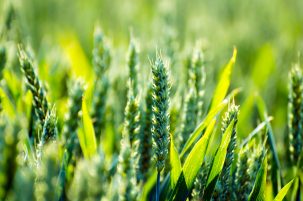Agriculture22
-

Building Regenerative Local Food Systems
On April 27, 2017, the Earth Institute, the School of International and Public Affairs, the Agriculture and Food Security Center and the Columbia Water Center presented the third annual Forum on Sustainable Agriculture, on Building Regenerative Food Systems.
-

In Jharkhand, Using an Old Technique for Sustainable Water
The Indian state of Jharkhand has plentiful rainfall, but most of that water runs off before it can be put to use by farmers, who struggle to make a living. To help improve irrigation and crop productivity, the Centers for International Projects Trust and Ranchi’s Birsa Agricultural University turned to a simple traditional technology, “dobhas,”…
-

Reduced U.S. Air Pollution Will Boost Rainfall in Africa’s Sahel, Says Study
If U.S. sulfur dioxide emissions are cut to zero by 2100, as some researchers have projected they will be, rainfall over Africa’s Sahel region could increase up to 10 percent from 2000 levels, computer simulations suggest.
-

Study: Overuse of Water Threatens Global Food Supply
In recent years, scientists have revealed that we are depleting our global groundwater reserves at an alarming rate. Now researchers have shown that a significant share of this unsustainable water use fuels the global food trade, which means water exhaustion in supplier nations could ripple outward, causing food crises half way across globe.
-

Forest-Friendly Development Can Bolster Peace in Colombia, Paper Says
As Colombia rebuilds following last year’s historic peace deal with Marxist FARC rebels, it has an opening to advance sustainable land development, a new study contends.
-

Students Compete in Food Security Simulation
How do multiple stakeholders compromise their competing needs and develop a global coordinated strategy that is politically palatable, possible and comprehensive enough to have an impact? Students from universities all over the U.S. Northeast gathered at Columbia for the 2017 NASPAA-Batten Student Simulation Competition that challenged students to do just this.
-

Trump’s Unifying Opportunity: Food Security
A sound strategy to secure the nation’s food supply and reduce its vulnerability within and beyond our borders will be a major step towards making America and the world more resilient in the face of increasing uncertainty.
-

The Risks and Impacts of Expropriating Community Lands
While a government might consider that a community’s lands can generate greater public benefits if used as the site of a large-scale project, such as for agriculture or forestry, that needs to be balanced with how taking the land will affect the people who lived there and depended on that land.
-

Study Finds Oil Palm Certification Plays Limited Role in Curbing Fires
Oil palm is in everything from food to cosmetics to fuel and is consumed and used by most people without giving it a second thought. Yet oil palm cultivation is a large contributor to environmental and social problems, especially in places like Indonesia, where the business of oil palm cultivation has become the second largest…

By studying thousands of buildings and analyzing their electricity use, Columbia Climate School Dean Alexis Abramson has been able to uncover ways to significantly cut energy consumption and emissions. Watch the Video: “Engineering a Cooler Future Through Smarter Buildings“
